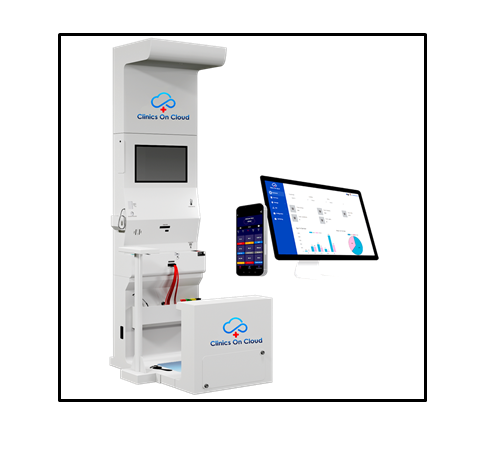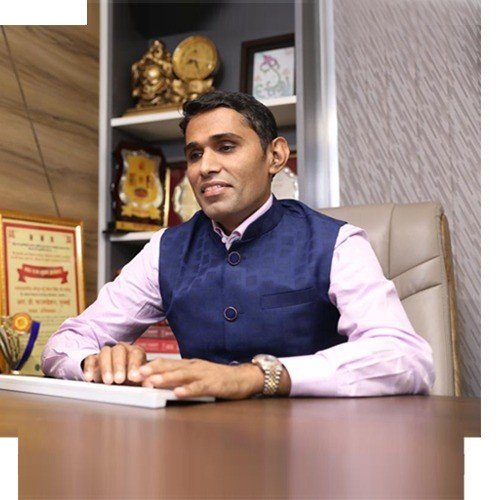New Delhi, October 3, 2024 – The Ayush Medical Value Travel Summit 2024, themed ‘Global Synergy in Ayush: Transforming Health and Wellness through Medical Value Travel,’ is set to position India as the premier global hub for holistic healthcare based on Ayush systems. This landmark event is organized by the Ministry of Ayush, Government of India, in collaboration with the Ministry of Tourism, the Government of Maharashtra, and key partners at Hotel Sofitel, BKC, Mumbai.
Shri Prataprao Jadhav, Union Minister of State (Independent Charge), Ministry of Ayush, and Union Minister of State, Ministry of Health & Family Welfare, Government of India, inaugurated the summit as the chief guest. In his address, he said, “At the Ayush MVT Summit, we celebrate India’s natural beauty and its holistic healthcare offerings—Ayurveda, Yoga, Unani, Siddha, and Homeopathy—attracting thousands of international tourists annually. Our focus on comprehensive health encompasses physical, mental, and spiritual well-being, making India a global leader in health tourism. Under the leadership of Hon’ble Prime Minister Shri Narendra Modi, Ayush has gained global recognition. He is now vital to India’s healthcare system, including integration into AIIMS and defence hospitals. With the G-20 presidency, we have positioned Ayush globally, integrating these practices into various healthcare systems and institutions nationwide.”
Hon’ble Ayush Minister added, “People are interested in experiencing authentic Ayush services, but many times it is observed that either they are unaware or don’t have access to these services. Events like this create bridges, bringing the healing power of traditional wellness within reach for all.”
Additionally, he mentioned his conversation with the Chief Minister of Maharashtra, Shri Eknath Shinde, in which he proposed establishing a Ministry of Ayush in Maharashtra and an Ayush University.
In his keynote presentation, Vaidya Rajesh Kotecha, Secretary, Ministry of Ayush, Government of India, stated, “The global reach of Ayush has significantly expanded, with exports witnessing substantial growth. The size of the sector has increased dramatically. I would like to inform you that RIES (Research in Information Systems), an autonomous institute under the Ministry of External Affairs dedicated to research in development economics, has conducted a study on the Forum for Indian Traditional Medicine (FITM). According to their analysis, which compared data from 2014 to 2020 and was reported in 2021, the size of the Ayush sector grew from $3 million in 2014 to $18.1 million in 2020—an increase of sixfold within six years. Furthermore, projections for 2023 estimate that this size will reach $24 million, representing almost an eightfold increase since 2014.”
Shri Dr. Manoj Nesari, Advisor (Ayu), Ministry of Ayush, Government of India, said in his welcome address, “We are thrilled to welcome 650 participants to the Ayush Medical Value and Wellness Travel Summit. The Ministry of Ayush has signed an MOU with the Ministry of Tourism to enhance Ayush and medical value travel, with support from the Indian Tourism Development Corporation. State governments must collaborate with their tourism departments to promote Ayurvedic wellness travel and ancient sites of significance. As the number of foreign travellers seeking Ayush treatments grows, it’s vital for all stakeholders—tour operators, insurance providers, and hospitality leaders—to unite and leverage government initiatives to boost this essential sector.”
“The state Ayush departments should collaborate with state health departments to promote archaeological sites of Ayurveda and yoga thus increasing Ayush based medical tourism.”, added Dr. Nesari.
Padma Shri and Padma Bhushan awardee Vaidya Shri Devendra Triguna, President of the All India Ayurvedic Congress, spoke passionately about his commitment to promoting Ayurveda. His dedication has led to the establishment of numerous institutes, including the Central Council of Indian Medicine (CCIM), the All India Institute of Ayurveda, and the Rashtriya Ayurveda Vidyapeeth. Vaidya Triguna’s efforts have significantly extended the reach of Ayurveda, impacting over 80 countries worldwide and establishing him as a torchbearer for the Ayush sector.
Dr. Raman Ghungralekar, Director, Directorate of Ayush, Government of Maharashtra, delivered the Vote of Thanks.

The summit aims to strengthen India’s position in Medical Value Travel (MVT) by integrating traditional Indian systems of medicine—Ayurveda, Yoga, Unani, Siddha, and Homeopathy (Ayush)—with modern healthcare systems. Other distinguished guests included Health, Ayush, and Tourism officials from the Governments of Maharashtra, Goa, Gujarat, Madhya Pradesh, and Rajasthan.
Key Event Highlights:
• The inaugural summit featured an Interactive Session with Foreign Missions in India, with high-level discussions on government initiatives and policies to promote Medical Value Travel and empower Ayush service providers.
• Presentations by central and State Governments and an interactive session with foreign missions in India explored regulatory frameworks, insurance coverage, and international patient services. Speakers included Dr. Manoj Nesari, Advisor (Ayu), Ministry of Ayush, Government of India, and Dr. Rajeev D Nivatkar, Commissioner, Directorate of Medical Education & Research, Government of Maharashtra.
• Session II: Success Stories and Expanding Opportunities in Ayush & Medical Value Travel: Insights from prominent wellness centres and hospitals attracting international patients. Speakers included Mr Joy Kumar Singh, CMO, Atmaneem Nature Cure, Gujarat; Mr Nikhil Kapur, Co-Founder of Atmantan Wellness Centre, Pune; and Ms Natalie Grant Nanda, Director of Ruby Hall Clinic, Pune.
• Panel Discussions: Featuring top leaders from the Ayush sector, including Dr Rohit Madhav Sane, MD & Founder of Madhavbaug Wellness, Mumbai, and Dr Saurabh B. Dave, Chairman of Dhanvantari Super Speciality Ayurveda, exploring challenges and opportunities for global collaborations in Ayush-based wellness services.
• The event also showcased an exhibition of Ayush manufacturers and service providers.
In rural India, awareness about Ayush varies from 87% to 99% for all states and UTs except for Arunachal Pradesh (77%), while in Urban India, the awareness is more than 86% across all states and UTs. Ayurveda is the most commonly used system (>86%) of Ayush across India. The Insurance Regulatory and Development Authority of India (IRDAI) issued new guidelines on April 1, 2024, requiring health insurance companies to offer AYUSH treatments at par with other treatments. So far about 49 life insurance companies are providing about 69 packages.
The summit provided a unique platform for stakeholders, including government officials, wellness centres, medical travel facilitators, insurance companies, and industry leaders, to discuss the future of Ayush-based healthcare and Medical Value Travel. Participants gained insights into regulatory provisions, opportunities in international markets, and initiatives driving Ayush’s global growth.
In conclusion, Shri Prataprao Jadhav said, “Ayush is tackling health issues like diabetes and liver diseases with evidence-based treatments, aiming for accessibility for all. We urge the government to provide free Ayush treatment for all employees and are committed to establishing affordable Ayush centres at block and tehsil levels. On October 9, we will inaugurate our first Ayush Jan Aushadhi Center to integrate traditional practices into healthcare. The nationwide ‘Women’s Health Check’ initiative will promote health awareness through Ayurveda. The first Medical Value Travel Summit 2024 in Mumbai will be followed by events in Bhubaneswar and a grand finale in Delhi, targeting one crore households with ‘Desh ka Prakrutik Parikshan – Ghar Ghar tak Ayurved on the occasion of Ayurveda Day.”
With support from FICCI, Invest India, ITDC, Ayushexcil, FHRAI and SEPC, the summit featured discussions on key government initiatives, industry insights, and successful case studies in medical value travel. India ranks 10th globally in the Medical Tourism Index, and its top wellness tourism destinations underscore the nation’s potential to attract international patients seeking integrated and cost-effective healthcare solutions.



 In Rajasthan’s remote villages, RD Foundation is pioneering a transformation, not just in healthcare, but in the socio-economic fabric of rural communities. By conducting over 100,000 OPDs across 36 villages, the foundation is not merely addressing immediate health concerns but is fostering a healthier, more productive population poised to contribute significantly to the local and national economy.
In Rajasthan’s remote villages, RD Foundation is pioneering a transformation, not just in healthcare, but in the socio-economic fabric of rural communities. By conducting over 100,000 OPDs across 36 villages, the foundation is not merely addressing immediate health concerns but is fostering a healthier, more productive population poised to contribute significantly to the local and national economy.